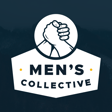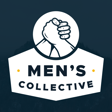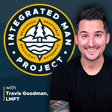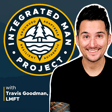
Breaking the Cycle of Trauma: The Power of Forgiveness (feat. Dj @djinspiresall)
In EPISODE 67 of The Therapy4Dads Podcast, DJ (@djinspiresall) shares his personal story of overcoming anger and facing his past traumas. He discusses his journey of moving to Florida and eventually returning to California to confront his past. DJ also shares his experience with numbing and how he learned to forgive in order to move forward. Later in the show, host, Travis, emphasizes the importance of ongoing self-reflection and personal growth for fathers. He encourages listeners to be curious about their own behavior and model healthy habits for their children. Tune in to hear DJ's story of resilience and how fathers can prioritize their mental health. Plus, find out where to find DJ for anyone seeking his services. Don't miss this inspiring and insightful episode of The Therapy4Dads Podcast.
DJ Johnson's life journey has been nothing short of tumultuous. Born to teenage parents, he had to navigate the challenges that came with it as he grew up. His father left his life early on, while his stepdad turned out to be abusive to him and his mother. DJ's experiences eventually led him into the foster care system when he was in fourth grade. DJ's story is a testament to the power of resilience and the human spirit's ability to overcome even the toughest challenges.
SUPPORT THE SHOW:
CLICK HERE: BuyMeACoffee/Therapy4Dads
JOIN the MAILING LIST & GET INVOLVED!
Support and follow DJ:
IG: @djinspiresall
BOOK: The Sun Is Always Shining
Connect and Support Travis:
YouTube: Travis Goodman
Instagram: @Therapy4Dads
Check out the Website: Therapy4Dads.com




